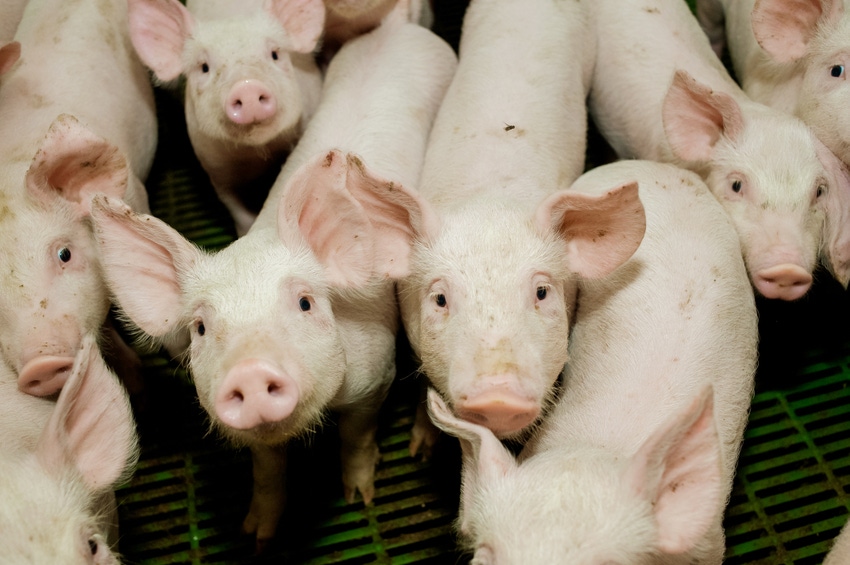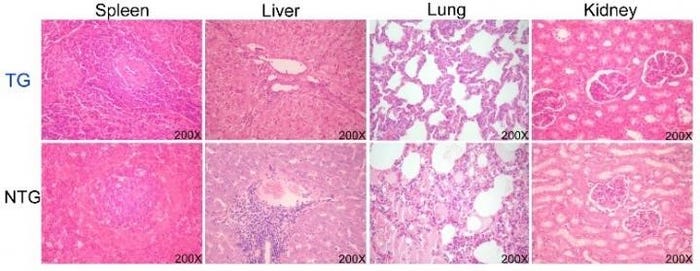Modified pigs could reduce virus-related clinical signs and mortality and transmit disease resistance to first-generation offspring.
December 14, 2018

Researchers have developed genetically modified pigs that are protected from classical swine fever virus (CSFV), according to a study published Dec. 13 in the open-access journal PLOS Pathogens by Hongsheng Ouyang and colleagues at Jilin University in China.
The authors noted that these pigs offer potential benefits over commercial vaccination and could reduce economic losses related to classical swine fever.
CSFV is responsible for a highly contagious, often fatal disease that causes significant economic losses. Due to the economic importance of this virus to the pig industry, the biology of CSFV has been investigated extensively, the news release on the results said.
Despite efforts by many government authorities to stamp out the disease from pig populations, it remains widespread and could be only a matter of time before the virus is reintroduced and the next round of disease outbreaks occurs. There is an urgent need to develop effective approaches to eradicate CSFV, the news release said. To address this challenge, Ouyang and colleagues generated CSFV-resistant pigs by combining a gene-editing tool called CRISPR/Cas9 with RNA interference (RNAi), a technique that silences gene expression.
The researchers demonstrated that these pigs could effectively limit the replication of CSFV and reduce CSFV-associated clinical signs and mortality. Moreover, disease resistance could be stably transmitted to first-generation offspring.
Currently, the researchers are conducting long-term studies to monitor the safety and effectiveness of this approach as these animals age.
According to the authors, generating anti-CSFV pigs using a genome editing-based strategy could be a direct and effective approach to facilitate the permanent introduction of novel disease resistance traits into the mass population of production pigs via conventional breeding techniques. In addition, this antiviral strategy can be applied to other domesticated species and could provide insights for future antiviral research.
"These transgenic pigs could effectively limit the replication of CSFV and reduce CSFV-associated clinical signs and mortality," Ouyang said.
The paper, "Genetically Modified Pigs Are Protected from Classical Swine Fever Virus," is available at http://journals.plos.org/plospathogens/article?id=10.1371/journal.ppat.1007193.
This work was financially supported through a grant from the Special Funds for Cultivation & Breeding of New Transgenic Organisms, the Program for JLU Science & Technology Innovative Research Team, the Program for Changjiang Scholars & Innovative Research Team in University in China and the Fundamental Research Funds for the Central Universities.

TG pigs exhibit antiviral responses during CSFV infection. H. Histopathological changes in the NTG pigs were confirmed by HE staining. These histopathological changes included a decrease in splenic white pulp and hyperaemia; an expansion of splenic red pulp; acidophilic change and accumulation of lipid droplets in hepatocytes; infiltration of inflammatory cells in the portal area of the liver; alveolar effusion, bleeding and infiltration of a large number of inflammatory cells in the lungs; and unclear renal tubular epithelial cell boundaries; and cell cavitation in the kidneys. Source: Xie Z et al. (2018).
You May Also Like

.png?width=300&auto=webp&quality=80&disable=upscale)

